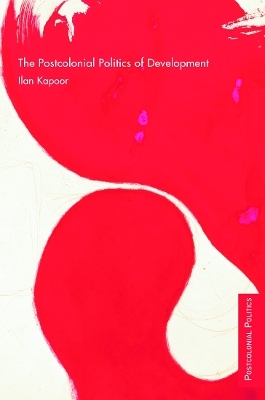
The Postcolonial Politics of Development
Routledge (Verlag)
978-0-415-77398-0 (ISBN)
Ilan Kapoor examines recent development policy initiatives in such areas as ‘governance,’ ‘human rights’ and ‘participation’ to better understand and contest the production of knowledge in development - its cultural assumptions, power implications, and hegemonic politics. The volume shows how development practitioners and westernized elites/intellectuals are often complicit in this neo-colonial knowledge production. Noble gestures such as giving foreign aid or promoting participation and democracy frequently mask their institutional biases and economic and geopolitical interests, while silencing the subaltern (marginalized groups), on whose behalf they purportedly work. In response, the book argues for a radical ethical and political self-reflexivity that is vigilant to our reproduction of neo-colonialisms and amenable to public contestation of development priorities. It also underlines subaltern political strategies that can (and do) lead to greater democratic dialogue.
Ilan Kapoor is Associate Professor at the Faculty of Environmental Studies, York University, Toronto. His research focuses on postcolonial theory, participatory development, and democracy, and has been published in several academic journals, including Third World Quarterly and Alternatives. He has worked with many development organizations, including the Canadian International Development Agency.
Introduction Part 1: Postcolonial Insights? 1. Capitalism, Culture, Agency: Dependency versus Postcolonial Theory 2. The Culture of Development Policy: Basic Needs, Structural Adjustment, Good Governance and Human Rights Part 2: Postcolonial Complicity and Self-Reflexivity? 3. Hyper-Self-Reflexive Development?: Spivak on Representing the Third World ‘Other’ 4. Participatory Development, Complicity and Desire 5. Foreign Aid as G(r)ift Part 3: Postcolonial Politics? 6. Deliberative Democracy or Agonistic Pluralism?: The Relevance of the Habermas-Mouffe Debate for Third World Politics 7. Acting in a Tight Spot: Homi Bhabha’s Postcolonial Politics 8. Bend it like Bhabha: Hybridity and Political Strategy. Conclusion
| Erscheint lt. Verlag | 7.2.2008 |
|---|---|
| Reihe/Serie | Postcolonial Politics |
| Verlagsort | London |
| Sprache | englisch |
| Maße | 156 x 234 mm |
| Gewicht | 440 g |
| Themenwelt | Geschichte ► Teilgebiete der Geschichte ► Wirtschaftsgeschichte |
| Geisteswissenschaften ► Sprach- / Literaturwissenschaft ► Anglistik / Amerikanistik | |
| Naturwissenschaften ► Geowissenschaften ► Geografie / Kartografie | |
| Sozialwissenschaften ► Politik / Verwaltung | |
| Sozialwissenschaften ► Soziologie ► Makrosoziologie | |
| Sozialwissenschaften ► Soziologie ► Spezielle Soziologien | |
| Wirtschaft | |
| ISBN-10 | 0-415-77398-9 / 0415773989 |
| ISBN-13 | 978-0-415-77398-0 / 9780415773980 |
| Zustand | Neuware |
| Haben Sie eine Frage zum Produkt? |
aus dem Bereich


